Question: Why did the Republic of Vietnam (South Vietnam) had repeatedly refused to reunify with North Vietnam? Was this against the wishes of South Vietnamese?
Answer: Well, I think that there are many reasons to explain Why South Vietnam had repeatedly refused to reunify with North Vietnam through the free election stipulated in the Geneva 1954 about ending the war and restoring peace in Vietnam and Indochina. However, in my answer, I shall only provide you other different views on this matter.
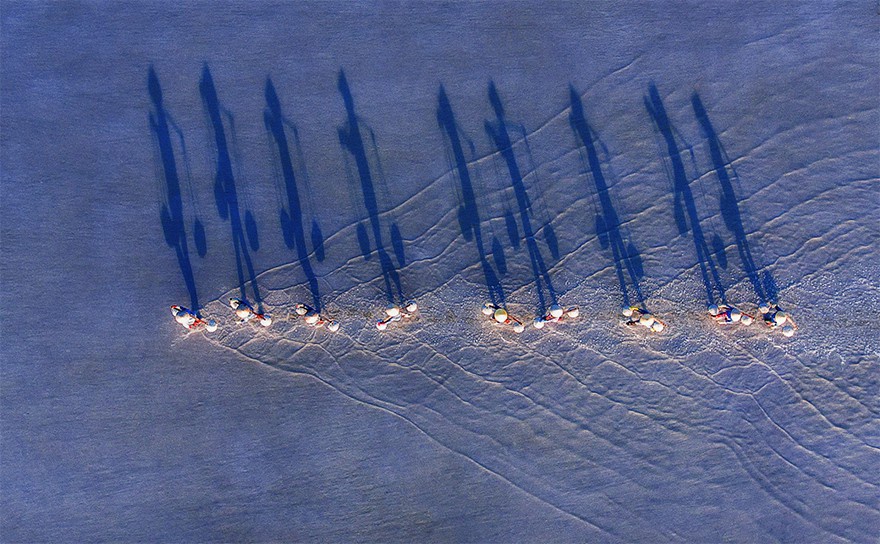
(The Vietnamese are working on their fields without worrying of being killed by the American bombs after many years of ending the Vietnam War)
Firstly , Before understanding Why the South Vietnam regime repeated to refuse to reunify with North Vietnam according to Geneva we must understand Why the South Vietnam regime was established and existed during the wars in Vietnam from 1949–1975.
Do you think that the South Vietnam regime was created to reunify with North Vietnam? I am not sure What happened in the dialogue between the Democratic Republic of Vietnam and the South Vietnam regime (“Republic of Vietnam) about holding a free election to reunify Vietnam according to the Geneva accord 1954. However, I see many signs to indicate that the South Vietnam regime would never agree with the free election and reunification Vietnam in a peaceful way - It relates much to the reason for establishing, the existent motivation and cause of ending the fate of the South Vietnam regime.
The purpose of establishing South Vietnam or its predecessor by the French colonists not to be reunified Vietnam at the will of the Vietnamese but to control Vietnam as the French slavery colony in Asia
Before 1949, the legitimate government of Vietnam was only the Democratic Republic of Vietnam led by Mr. Ho Chi Minh and in fact, France recognized this government according to the Franco-Vietnam Agreement of March 6th, 1946 (In this accord signed in 1946, the term “Republic of Vietnam mean the Democratic Republic of Vietnam’’) in Vietnam. However, France wanted to control Vietnam as their slavery country again but Mr. Ho’s government disagreed and led to the First Indochina War between Vietnam and France. Thus, to keep the interests and position of France in Vietnam, the French colonist decided to establish the predecessor of the South Vietnam regime - State of Vietnam to control Vietnam at their will. This is the main cause to explain Why its predecessor of the South Vietnam regime was born in 1949.
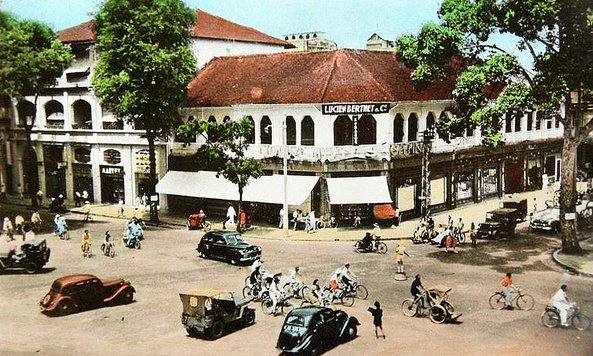
(Saigon/Ho Chi Minh in the French colonial period)
The existent motivation of the South Vietnam regime or its predecessor from 1949 to 1975 mainly was to serve the right and interests of the French colonists and then American imperialists in Vietnam and Indochina, not to reunify Vietnam.
In fact, from 1949 to 1954, the South Vietnam regime was fighting side by side with the French colonists to suppress the independence movement of Vietnam led by Mr. Ho’s government and joined the First Indochina War with the role of supporting the French colonists. If you were the Vietnamese patriot, you would support the government who supported the foreign invaders to fight against the independence of Vietnam?
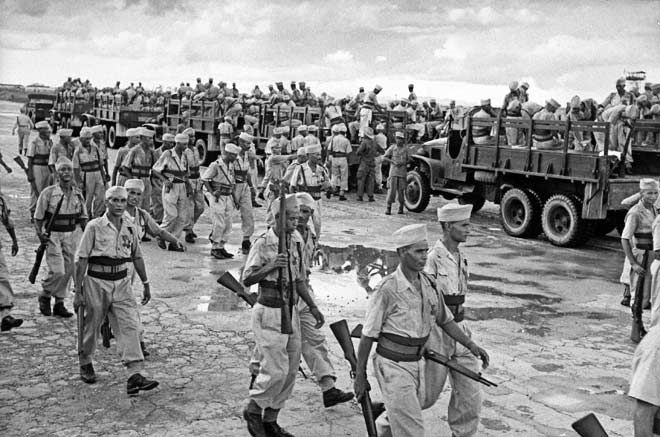
Even after the Geneva conference in 1954, to 1975, the main purpose of its existence - the South Vietnam regime was to fight against North Vietnam led by the communist forces, not to reunify Vietnam through any means as possible as it could.
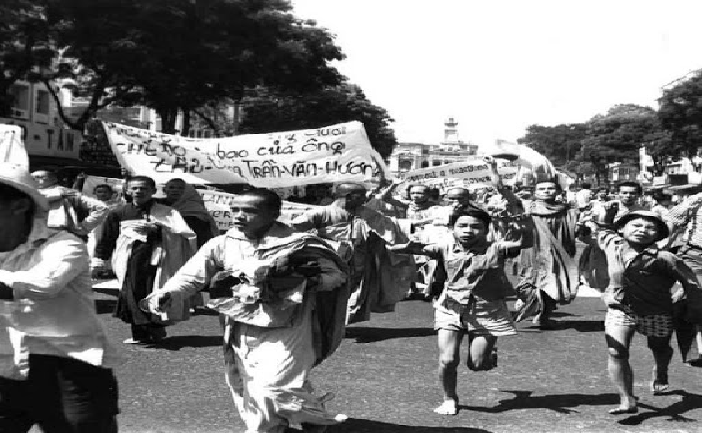
(the Vietnamese protested against the suppression of the South Vietnam regime)
The cause of the quick collapse of the South Vietnam regime only two years from the American retreat out of Vietnam in 1973.
The world order was changing around the 1970s when China made friends with America and being against the Soviet Union. Moreover, there were many signs of communism that had seemed to be prevented in Asia. America also established firmly its system of allies in Asia through the Asian NATO - SEATO . Also, America could not afford to defeat the resistance of the Vietnamese and win the Vietnam War. Thus, America decided to limit gradually its involvement in Vietnam from 1968, especially after formally retreat out of Vietnam in 1973. In 1974 and 1975, America cut down its aid to the South Vietnam regime and let it dying or surviving at the will of God. You see clearly here - The strategical interests to support the South Vietnam regime to fight against North Vietnam led by the communist forces was decreased year to year and the burden to aid it sharply increased. Since this serious imbalance, America decided to retreat out of Vietnam and limit gradually its burden to the Vietnam War. Some even said that America fled out of Vietnam in a panic and forget its responsibility of alliance to the South Vietnam regime.
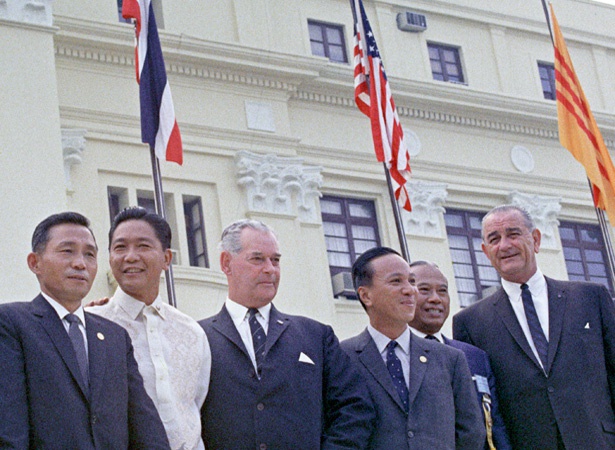
(SEATO Summit)
Of course, American decreased its involvement and commitment in Vietnam are only one of the main reason to explain Why the South Vietnam regime collapsed quickly in 1975 without any help from America.
To sum up this point: The purpose of establishment, the existent motivation and the cause of the end of the South Vietnam regime or its predecessor - A state of Vietnam during the wars in Vietnam were not intended to reunify Vietnam in any means except for the interests and right of French colonists and American imperialists.
Secondly, France and America did not want Vietnam reunified led by a communist leaders - Mr. Ho
For France: if France wanted Vietnam reunited, they should have not require to divide Vietnam temporarily in 1954 according to the Geneva 1954. Some people said that North Vietnam accepted the temporary division of Vietnam in 1954 and led the two decades of wars and killings. However, we should know that North Vietnam or the Vietnamese were not enough powerful to require more favorable terms during the Geneva conference in 1954. North Vietnam accepted this division mainly because of the real matters relating to the strength between the Vietnamese and the French colonists in Indochina. Also, Vietnam could not afford to continuously fight against the French colonist without guns and ammunition from China and the Soviet Union. So, exactly, Vietnam was divided temporarily without any assurance to reunify in a peaceful way. France divided Vietnam and established the South Vietnam regime not to carry out the Geneva 1954, especially relating to the terms of holding a free election to reunify Vietnam
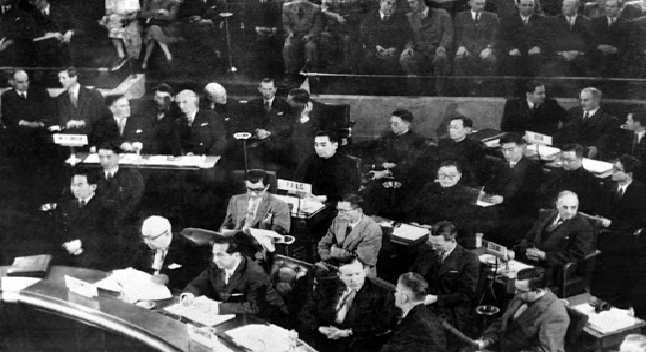
For America : If they wanted to reunify Vietnam, they should not take their effort to install a new leader of the South Vietnam regime - Mr. Ngo Dinh Diem and made a series of step to wash out the dirty past of the South Vietnam regime such as:
Forced France and the French puppet Leader of the South Vietnam regime to install Mr. Ngo Dinh Diem as primer minister.
Holding the fake referendum in 1955 and established the so-called Republic of Vietnam in South Vietnam.
Making and guiding a series of military coup against the leaders of the South Vietnam regime like in 1963 .
Arica only cared about its purpose - stopping communism spread over the region rather than the will of the Vietnamese.
Thirdly , All of the leaders of the South Vietnam regime did not want to reunify with North Vietnam according to the will of the Vietnamese and also the international law.
In name of the interests of the Vietnamese, all of the presidents of the South Vietnam regime feared the Vietnamese communist forces led by Mr. Ho might probably massacre the Vietnamese. However, they did not care about How the Vietnamese in the South Vietnam regime was massacred by America and the American allies such as South Korea. As far as I know, the South Vietnam regime or its leaders said nothing or took any steps such as investigating these cases to protect the Vietnamese before the brutal atrocities of America and South Korea.
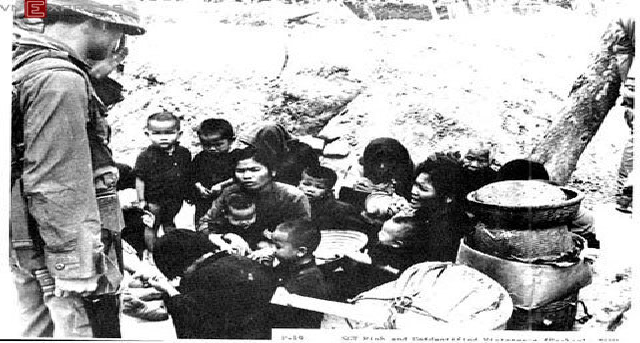
(My Lai massacre committed by America and about 43 other massacres committed by South Korea during the Vietnam War)
Behind American, the South Vietnam regime did not fear the terrible wars would happen in Vietnam because at, the end, many of them would immigrate to America or other western countries without any doubt.
From my perspective, simply, the leaders of the South Vietnam regime feared that they would lose in a free election before the North Vietnam leaders - Mr. Ho Chi Minh, so, they refused to reunify with North Vietnam. Exactly, In the name of the will of the special Vietnamese group in South Vietnam, they took advantage of Vietnamese against North Vietnam led by the communist leader to protect and preserve their own individual right and interests.
According to the American source, 80% of the Vietnamese in South Vietnam would have voted for Mr. Ho - Leader of North Vietnam if a free election was held.
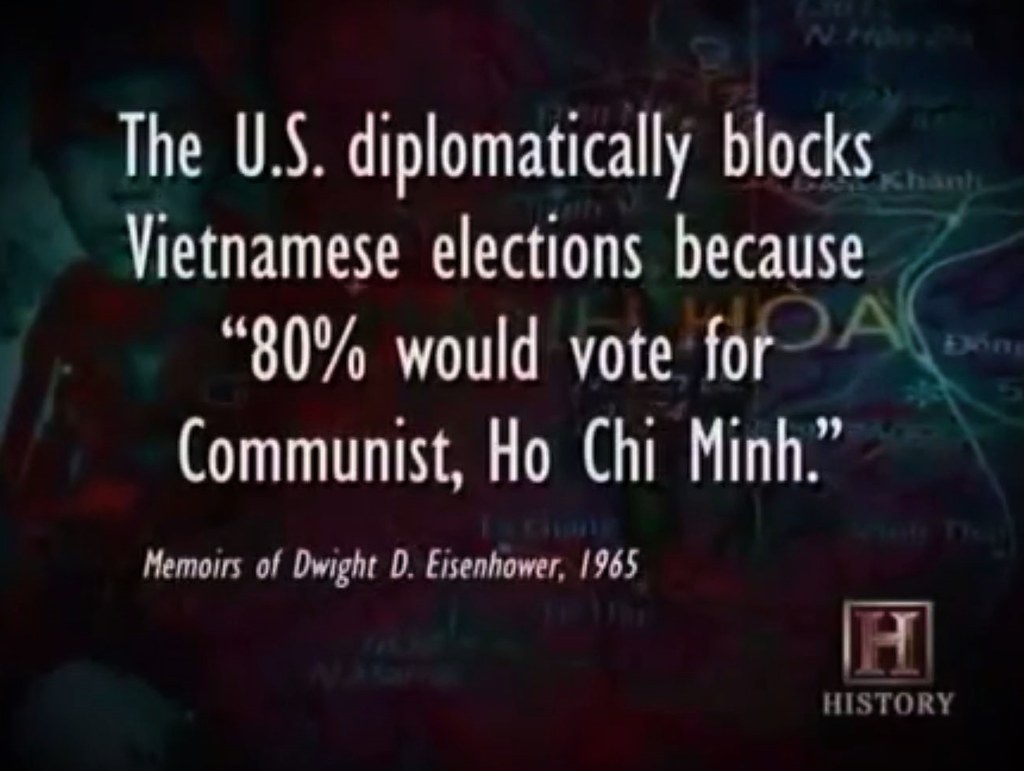
Some or many people, especially the leaders of the South Vietnam regime wanted to put their self-interests above the interests of the Vietnamese. It explains partly Why the South Vietnam regime was not supported popularly by the Vietnamese.
Fourthly, About your next question “ Was this against the wishes of South Vietnamese.
After reviewing the American documents above and also the real will of the Vietnamese after nearly 70 years of being slaves of the French colonists, most of them wanted Vietnam to have independence and reunification in all costs. It explains why the Vietnamese were willing to sacrifice their lives to fight and liberate their country for such a long time from 1945–1975.

